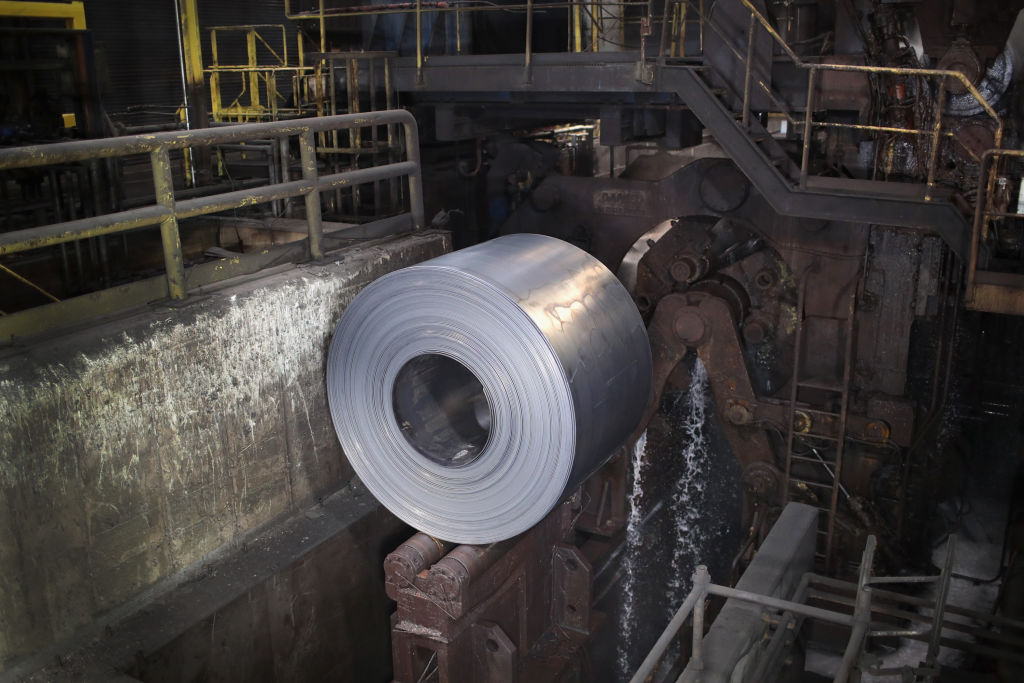
Bloomberg — The U.S. and the European Union are nearing a trade truce on steel and aluminum that will allow the allies to remove tariffs on more than $10 billion of their exports each year.
Negotiators are poised to reach an agreement, possibly over the weekend, according to people familiar with the talks, who asked not to be identified because discussions are ongoing.
The transatlantic allies are racing to reach a deal before Dec. 1, when the European tariffs are set to double.
The dispute started in 2018, when former U.S. President Donald Trump imposed duties on steel and aluminum from Europe, Asia and elsewhere, citing risks to national security. The EU subsequently retaliated, targeting products including Harley-Davidson Inc. motorcycles, Levi Strauss & Co. jeans and bourbon whiskey.
Steel Quotas
A message left with the European Commission wasn’t immediately returned. The U.S. Trade Representative’s office declined to immediately comment. The Commerce Department’s press office didn’t immediately respond to requests, all of which were made out of regular business hours.
The EU and U.S. have been negotiating so called tariff-rate quotas, which allow countries to export specified quantities of a product to other nations at lower duty rates, but subjects shipments above a pre-determined threshold to higher tariffs, according to officials.
Reaching an agreement on the final details has been difficult and once an accord is reached it will have to be formally accepted by both sides, according to one of the people.
The move toward getting rid of the metals tariffs marks a significant rapprochement between the allies, which continued to have a troubled relationship even after President Joe Biden took office in January with a promise to restore ties.
The EU had been trying to strike a deal that would go back to historical trade volumes of aluminum and steel before the tariffs were imposed, while keeping any accord compatible with World Trade Organization rules.
Security Threat
During the talks, the Biden administration had offered substantial duty-free access to the EU that would protect the U.S. market from global distortions while benefitting EU producers and their bottom line, a person familiar with an earlier proposal said.
In 2018, then-President Trump slapped a 25% duty on steel imports and 10% on inward-bound shipments of aluminum from producers including the EU and China using section 232 of the 1962 Trade Expansion Act, labeling competition on the metals a national-security threat. The statute allows for levies without a vote by Congress if imports are deemed a national-security threat.
Brussels retaliated by preparing tariffs on iconic American brands in key Republican constituencies. Paul Ryan, then-Republican speaker of the House of Representatives, comes from the same state — Wisconsin — where Harley-Davidson is based. Bourbon whiskey hails from then-Senate Majority Leader Mitch McConnell’s home state of Kentucky.
–With assistance from Bryce Baschuk and Jenny Leonard.
More Must-Reads from TIME
- Donald Trump Is TIME's 2024 Person of the Year
- Why We Chose Trump as Person of the Year
- Is Intermittent Fasting Good or Bad for You?
- The 100 Must-Read Books of 2024
- The 20 Best Christmas TV Episodes
- Column: If Optimism Feels Ridiculous Now, Try Hope
- The Future of Climate Action Is Trade Policy
- Merle Bombardieri Is Helping People Make the Baby Decision
Contact us at letters@time.com